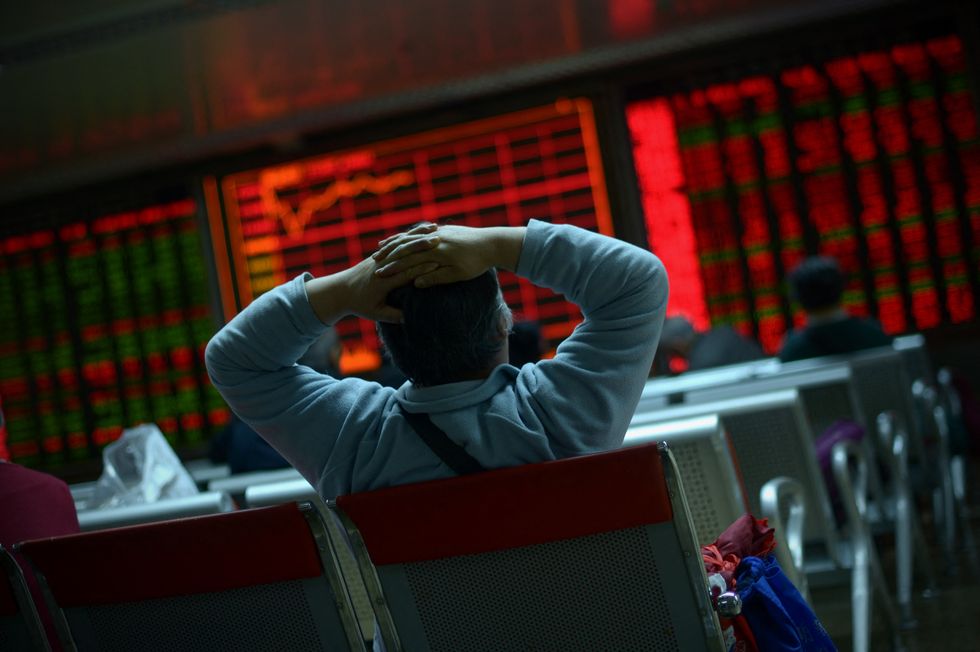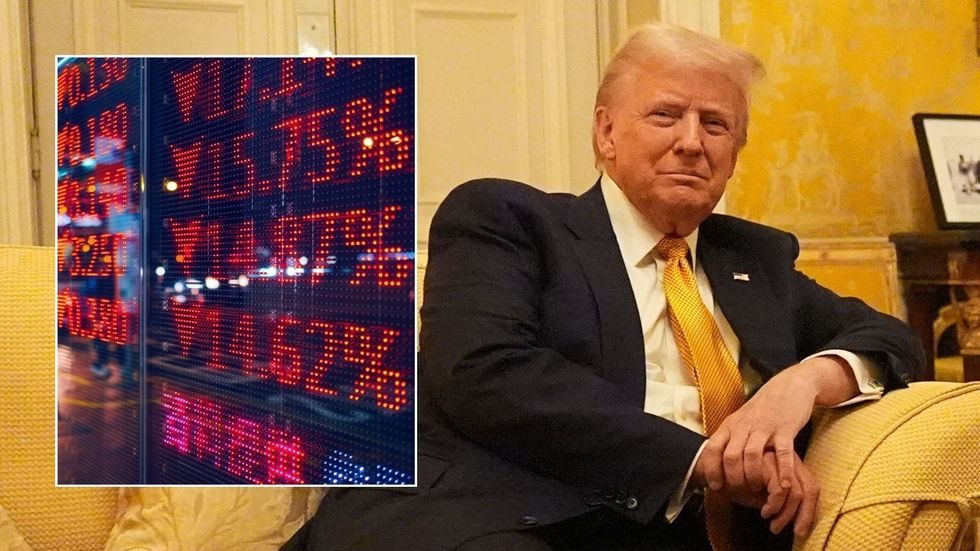The FTSE 100 fell sharply on Wednesday, dropping 2.34 per cent at the open.
The index lost 186 points to reach 7,724.29, wiping out nearly all of Tuesday’s gains.
The sharp sell-off followed the latest round of Trump’s trade measures coming into force.
This included a staggering 104 per cent tariff on Chinese goods, sparking renewed fears of a global slowdown and tighter trading conditions.
Asian markets felt the pressure first, with Japan’s Nikkei tumbling 3.93 per cent overnight. In Europe, the fallout continued, as France’s CAC 40 fell 2.4 per cent and Germany’s DAX dropped 2.3 per cent in early trading.

FTSE 100
Investors are now bracing for further volatility as markets digest the full impact of the tariffs and weigh the potential knock-on effects for inflation, trade flows, and central bank decisions.
At a speech at the National Republican Congressional Committee dinner in Washington DC, Trump told the audience that the US is “very shortly” going to announce a “major tariff” on pharmaceuticals.
Britain faces the lowest 10 per cent “baseline” tariff rate and has resisted imposing immediate retaliatory action, unlike the European Union which is impacted by a 20 per cent import tax.
Ministers still hope an economic agreement with Washington can be reached to soften the blow of the levy which strikes UK goods, along with a 25 per cent import tax on cars and separate ones for steel and aluminium.
 The market volatility comes as stocks have been under pressure for weeks, with the S&P 500 down five out of the past six weeks amid growing tariff uncertaintyGETTY
The market volatility comes as stocks have been under pressure for weeks, with the S&P 500 down five out of the past six weeks amid growing tariff uncertaintyGETTYBut the Government will also seek to strengthen trade ties with other countries, including by trying to rebuild ties with the European Union.
The Chancellor said: “In a changing world, this Government is accelerating trade deals with the rest of the world to back British business and provide the security working people deserve.
“We are going further, faster to create the best possible conditions for British business by working to reduce barriers to trade.”
 Economists are sounding the alarm over the impact of Trump tariffs GETTY
Economists are sounding the alarm over the impact of Trump tariffs GETTY 

